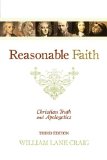Tyler Blanski recently wrote a provocative opinion article for CNN: How Christians Should Rethink Sex. Blanski bemoans how numerous Christians have marginalized sex through constant obsession over rules and boundaries. The result is what Blanski calls a “chastity cult,” with promise rings, constant confessions of struggles with pornography, and warnings against various slippery slopes. Sex ends up on a pedestal, an abstraction known better for its traps and dangers than its blessings. As such, Christians miss the full measure of joy, playfulness and pleasure God intends for marital sex. Even as I write this, I feel the need to stress the importance of the “marital” modifier on sex. It seems that caution is the rule of thumb, even for me.
For his part, I think Blanski writes an excellent article that makes a great point: Christians should have the best sex life possible, full of all the adventure, excitement, joy, and pleasure God intended (coughwithinmarriagecough). As he writes,
Ever wonder why the middle of the Bible is filled with sexual love poetry? Ever speculate why God created the clitoris? Or why human beings have almost always and everywhere celebrated marriage?
In defense of the chastity cult, however, a few comments are in order:
First, Blanski might be overstating matters by claiming that “the middle of the Bible is filled with sexual love poetry.” He’s right if he means Song of Songs, and nothing else. I would argue strongly that there is no sexual love poetry elsewhere in Scripture. There is plenty of poetry that uses marriage, prostitution and other sexual language to illustrate, for example, Israel’s violation of the covenant, but no sexual love poetry between God and humankind. I’d feel more comfortable with “Ever wonder why an entire book of the Bible is filled with sexual love poetry?” I’m picking nits, but I’ve already tipped my hand: I’m cautious.
Secondly, why am I (and many others) so cautious? By and large, I think the chastity cult is a reaction to the fact that sex is so commonly misused and abused. In our (American) world, it is so easy to slip into sexual sin, and so common, that massive efforts abound to warn, instruct, and protect us from it. We might levy a similar complaint regarding food: there’s the FDA, nutrition labels, billions of diet and nutrition books, and all sorts of warnings against one thing or another. Why? Is not food God-given? Ever wonder why there’s such variety in things to eat? Why we have millions of taste buds? God could have just made an non-flavored drink that gave us all we needed to survive and done away with all the fluff, no? Well, we have the FDA, labels, and all the rest because, frankly, there’s lots of junk and abuse out there. So also with sex. There are many books about sexual purity because so many struggle with sexual purity. There are also many books about weight loss because so many people struggle with obesity.
Finally, we might also balance the culture Blanski paints by noting that there are also plenty of Christian books, conferences, and resources that stress the very things he wishes were more prevalent. Much of his article is colored by his experience, and the perception that Christians are too prude is a large function of what Christian circles you inhabit. I would count myself among those who feel plenty of emphasis on both sides of the sexual coin, with its warnings and prohibitions on one side, and encouragements and blessing on the other.
Humankind has a knack for taking God-given goodness and perverting it. It’s been our story since the beginning. Sex is no exception to this rule, and millions upon millions have forfeited God’s best for their lives through a depressing variety of sexual sins. So warnings and prohibitions abound. But have you ever read the Bible? While it has its share of positive commands and encouragements (e.g., “Love the Lord your God…”), there are certainly plenty of boundaries and negative edicts (e.g., most of the 10 commandments). So in the end, I’ll take my chastity cult, thank you, but I’ll also take the Blanski’s of the world to remind me that sex is good.
Read Full Post »










